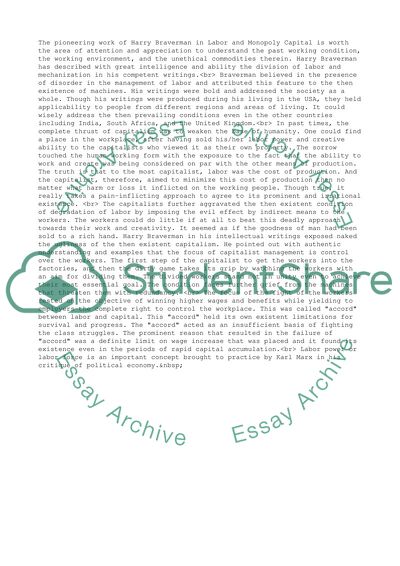Cite this document
(“The Degradation of Work Essay Example | Topics and Well Written Essays - 2500 words”, n.d.)
Retrieved from https://studentshare.org/business/1503983-the-degradation-of-work
Retrieved from https://studentshare.org/business/1503983-the-degradation-of-work
(The Degradation of Work Essay Example | Topics and Well Written Essays - 2500 Words)
https://studentshare.org/business/1503983-the-degradation-of-work.
https://studentshare.org/business/1503983-the-degradation-of-work.
“The Degradation of Work Essay Example | Topics and Well Written Essays - 2500 Words”, n.d. https://studentshare.org/business/1503983-the-degradation-of-work.


